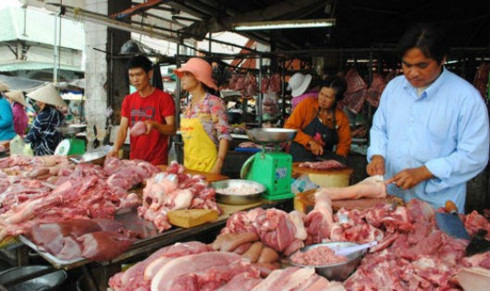Inflation may return by the end of 2017: analysts
It will be difficult to curb inflation if unreasonable measures are used to reach a GDP growth rate of 6.7% and low inflation rate of 4% in 2017.
 |
A GSO (General Statistics Office) report shows that the CPI (consumer price index) in the first six months of the year increased by 4.15% compared with same period last year.
In the first half of the year, CPI was curbed at the lowest levels compared with the same period of the last five years.
The CPI in the first half of 2017 increased by only 0.2% compared with December, the lowest increase since 2012 (it increased by 2.52% in the first six months of 2012, by 2.4% in 2013, 1.38% in 2014, 0.55% in 2015 and 2.35% in 2016).
However, analysts warn that high inflation may return by the end of the year. In previous years, CPI fell in the third quarter and rose in the fourth quarter.
Ngo Tri Long, a price expert, thinks it is not likely that the inflation rate will fall to 4% as demand has risen again and the prices of basic goods in international markets have recovered.
He said though the inflation rate was low in the last few months, pressure on inflation is high as the GDP growth rate in the first half of the year was lower than expected.
The government is still determined to obtain a high GDP growth rate of 6.7% this year despite low growth rates in the first half.
“This will put pressure on inflation as monetary policies will be loosened to boost GDP growth,” Long said.
According to the expert, more money will be pumped into the economy to help enterprises increase production.
In recent years, this has been done through two channels – OMO (open market operation) and dollar purchases from commercial banks.
The managers of commercial banks have confirmed that the State Treasury converted a big amount of demand deposits at the central bank to fixed-term deposits at commercial banks in April and May.
The increased money supply in the economy lowered interbank interest rates immediately from 4.7-4.9% per annum for a one-week loan to 2.3%.
The central bank, if wanting to curb inflation, will have to attract money back through issuing deposit certificates. However, it still has not taken such a move.

